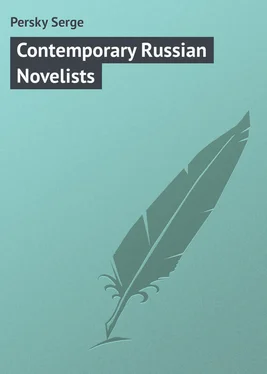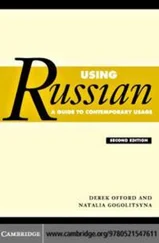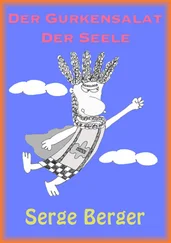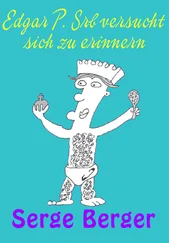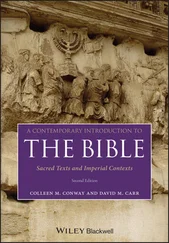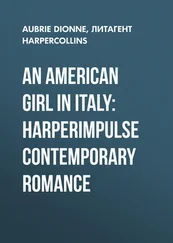Serge Persky - Contemporary Russian Novelists
Здесь есть возможность читать онлайн «Serge Persky - Contemporary Russian Novelists» — ознакомительный отрывок электронной книги совершенно бесплатно, а после прочтения отрывка купить полную версию. В некоторых случаях можно слушать аудио, скачать через торрент в формате fb2 и присутствует краткое содержание. Жанр: Русская классическая проза, на английском языке. Описание произведения, (предисловие) а так же отзывы посетителей доступны на портале библиотеки ЛибКат.
- Название:Contemporary Russian Novelists
- Автор:
- Жанр:
- Год:неизвестен
- ISBN:нет данных
- Рейтинг книги:3 / 5. Голосов: 1
-
Избранное:Добавить в избранное
- Отзывы:
-
Ваша оценка:
- 60
- 1
- 2
- 3
- 4
- 5
Contemporary Russian Novelists: краткое содержание, описание и аннотация
Предлагаем к чтению аннотацию, описание, краткое содержание или предисловие (зависит от того, что написал сам автор книги «Contemporary Russian Novelists»). Если вы не нашли необходимую информацию о книге — напишите в комментариях, мы постараемся отыскать её.
Contemporary Russian Novelists — читать онлайн ознакомительный отрывок
Ниже представлен текст книги, разбитый по страницам. Система сохранения места последней прочитанной страницы, позволяет с удобством читать онлайн бесплатно книгу «Contemporary Russian Novelists», без необходимости каждый раз заново искать на чём Вы остановились. Поставьте закладку, и сможете в любой момент перейти на страницу, на которой закончили чтение.
Интервал:
Закладка:
The Russian writers who gave themselves up so passionately to this influence, – still so new even in Europe, – not able to support their political ideal, with a press, as it were, gagged by the censor, engaged in the struggle along the line of customs. They attacked the prejudices which clog the relations among men, and rose up against family despotism and the inferior position of women from a civil and economic point of view. But, between 1860 and 1870, when the enfranchisement of the serfs reduced the power of the censor, all that had been confined in the souls of the Russians burst forth. Chernishevsky wrote economic articles on capital and on the agricultural community; he studied the system of John Stuart Mill, from which he deduced his socialistic conclusions, and his reputation grew immediately at home and abroad. He became a leader of thought among the new generation.
At the same time, the young critic Dobrolyubov, author of an analytical study of Russian customs, "The Kingdom of Shadows," called the "intellectuals" to a struggle for the rights of the oppressed people, and was ready himself to "drain the bitter cup intended for those who have been sacrificed." Also at this time there appeared the poet Nekrasov and the satirist Saltykov. The former, a profound pessimist, described in his best verses the bitter fate of the lower classes; the latter with his sarcasm scathed bureaucratic arbitrariness, while from abroad was heard the free ringing of "The Bell," – a paper founded by Hertzen, – which seemed to be announcing that freedom was coming. Two articles by the poet Mikhailov on the situation of women started a vast movement. The women soon filled the lecture-halls of the university, and the class-rooms, and organized a veritable campaign to defend their rights in the name of the principle of liberty. All the partisans of democracy or socialism applauded them. The agitation became general; it seemed as if they wanted to make up for lost time by this tremendous activity; everywhere Sunday schools were started and public libraries opened; workingmen's associations were formed on socialistic principles, and the ardent younger generation spoke to the ignorant masses and asked them to join them in the coming struggle.
This epoch has been called "the moral springtime" of Russia, and in truth it was a spring with all of its real splendors and illusions. A sudden wave of life surged from one end of the empire to the other. Up above, the government was making reforms prudently, as if afraid of going too far; down below, a great transformation was taking place. It was at this time that certain bold projects were contemplated at which the government took fright. The "springtime" proved ephemeral. A triumphant reaction nipped in the bud this movement towards emancipation, with all its hopes. In 1877, after the Russo-Turkish war, it seemed as if the movement were going to start again. Less vast and less diverse, but more definite, it immediately put all of its strength into the popular propaganda and showed its activity by the assassination of the emperor and by several other crimes. It was a terrible struggle, till finally the leaders again succumbed under the mighty blows of their adversaries. The years that followed this defeat (1880-1905) were most inauspicious in Russian life. A profound apathy deadened society, and an atmosphere of anguish and disillusion – which have left visible traces in Russian literature – weighed it down.
In short, it may be said that Russian thought has always been led away by the theories of certain European parties who are most opposed to political and social organization of the state.
The vigor, the clearness, and the force of negation with which this characteristic manifests itself in the ideas and customs of the Russian radical-socialists have often distorted, in the eyes of other countries, opinions or doctrines which it is important to present in their true light.
Thus, Bazarov, that nihilistic creation of Turgenev, appeared to the English, French, and German public as a mystical hero not viable in human society, while Pisarev, one of the sanest of Russian critics, considers him as a model of the really free man. As to Turgenev himself, he saw that the coming of this type would make concrete a rising force worthy of holding attention and also of commanding some respect.
In practical life, this negative force has found its most extreme expression in what has already been pointed out, that is, in the revolutionary anarchism of Bakunin and in Tolstoy's recent theories of pacific anarchism, which are founded on the gospel. But, while very significant as great illustrations of certain sides of Russian mentality, neither the one nor the other of these anarchistic doctrines, so opposed in their substance, can be considered as an expression of the modern Russian socialistic movement. Having found a basis in the workingman movement of their country, the Russian socialistic theoreticians have become more practical, and their activity turns back to the realm of European socialism, which is to be found in the doctrines of Karl Marx.
There was a time in Europe when they christened with the name "nihilism" this active negation of civilization and of bourgeois customs, so characteristic of the Russian "intellectuals." Taken in its literal sense, this word is inexact, since those to whom it was applied were inspired by a very high ideal. In a loose use of the word, nihilism has, on the contrary, a real significance, especially if one connects it with most of the Russian "intellectuals." The liberal tendencies which were brewing in the realistic literature of the period from 1840 to 1850, and which manifested themselves suddenly with particular strength during the tumultuous decade between 1860 and 1870, made the substance of the new theories and the base of Russian mentality. These theories were very bold in their negation, and it is for this reason that they have been called "nihilistic."
If this intellectual "élite" should some day triumph in Russia, will it be true to its moral idea of justice and liberty? It probably will. We may then see the following phenomenon take place: the realization of the most advanced program of modern civilization in one of the most backward countries of Europe.
However paradoxical such a prevision may seem at first, it has a fundamental element of truth. Two obstacles bar the way to civilization and the normal development of new ideas, which are the foundation of progress. First of all, there is the naïve and boorish ignorance of the common people; then the resistance which every established society instinctively offers to ideas of reformation. Of these two conservative forces, Russia knows but one, pure and simple ignorance, while the second, which can have art and science as powerful allies, is completely lacking. But ignorance cannot last forever. It diminishes more and more; that is why the most advanced ideas of European civilization naturally go hand in hand with learning in Russia, and occupy all places which knowledge wins from ignorance. Since the Russian has had a taste of science he has become the champion of social and democratic ideas; the latter develop even with elementary instruction, as can easily be seen by observing the movements made among the workmen of the city, and also among the more advanced elements of the peasant population.
These particulars had already attracted the attention of the brilliant peace advocate and profound thinker, Hertzen, who, distressed by the bloody reprisals of bourgeoise Europe, following the Revolution of 1848, fixed his attention on Russia, from which he expected great things, – among others, a new civilization freed from the prejudices and customs which held it back in other countries.
Hertzen represented Russia as an immense plain where people were getting rid of old thatched cottages, and at the same time collecting the necessary materials for new habitations. He saw a world in which no one lived as yet, but where life as it should be was being prepared for. And this idea, which may seem exaggerated, has a good deal of sense in it. Does not every backward nation, which hastens to take her place in the circle of the more advanced peoples of Europe, resemble a vessel into which a new wine is to be poured?
Читать дальшеИнтервал:
Закладка:
Похожие книги на «Contemporary Russian Novelists»
Представляем Вашему вниманию похожие книги на «Contemporary Russian Novelists» списком для выбора. Мы отобрали схожую по названию и смыслу литературу в надежде предоставить читателям больше вариантов отыскать новые, интересные, ещё непрочитанные произведения.
Обсуждение, отзывы о книге «Contemporary Russian Novelists» и просто собственные мнения читателей. Оставьте ваши комментарии, напишите, что Вы думаете о произведении, его смысле или главных героях. Укажите что конкретно понравилось, а что нет, и почему Вы так считаете.
